Community Engagement and Involvement in Acquired Brain and Spine Injury Research
28th January 2025 by Prof. Charlotte Whiffin
Community Engagement and Involvement in Acquired Brain and Spine Injury Research
On the 26th November we hosted our first CEI webinar entitled: The Power of Partnership: Strengthening Acquired Brain and Spine Injury research through Community Engagement and Involvement. This event was aimed at showcasing the excellent work of our partners who are working with communities to drive meaningful, inclusive, and impactful research.
The first session ‘Learning through community engagement initiatives’ had presentations from Mr Anil Kumar, Dr Franklin Chu Buh and Associate Professor Ursula Rohlwink. These talks gave a fantastic insight into the important projects where researchers are working with local communities to reduce the incidence of brain and spine injuries. Mr Anil Kumar talked passionately about the critical importance of helmet use for pillion riders showcasing a specific project to increase their use in India. Dr Fanklin Chu Buh spoke about his pilot project to reduce occupational injury and increase road safety in Cameroon. Associate Professor Ursula Rohlwink talked about the work of the African Brain Children Research Initive and their outreach event to inspire the next generation of neuroscientists in South Africa while also increasing understanding of the importance of seatbelt use in children.
.
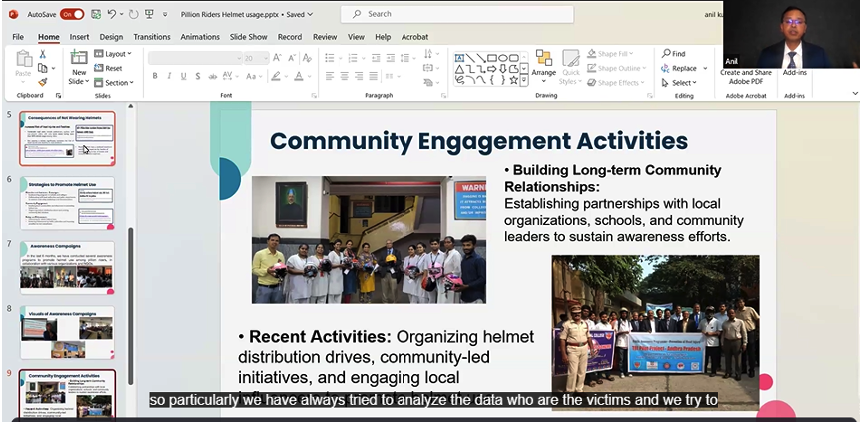
In the second session ‘Working with community advisory boards to inform the research process’ we focused on more formal approaches to engaging communities through their explicit involvement within the research process. First Dr Almas Fasih Kattak provided a comprehensive review of the work implemented at Northwest General Hospital and the varied ways in which their community advisory board was supporting researchers and the translation of findings into practice. Dr Abenezer Tirsit then described the CAB at Addis Abba which was supporting research on neural tube defects and finally Nadya Castillo Aragón and Luz Llined Mendoza presented their collaboration with communities to develop clinical practice guidelines for TBI in Columbia.
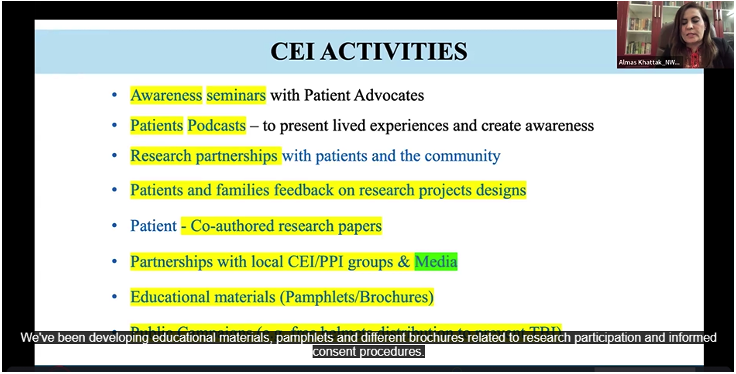
Both sessions were followed by a panel discussion where we were able to take questions from attendees. Through this forum we were able to explore strategies to ensure the voices of marginalized groups were included in CEI activities and we reflected on learning that would not have been possible without the inclusion of communities. We had over 100 people register for the event and 55 join us live (those unable to attend in person will be able to access the recording in due course). Of those who attended we received 34 completed evaluation forms. This evaluation showed that the overall quality of the webinar was highly rated, engaging, relevant to attendees’ needs and interests and that presentations were clear and well-delivered. The quality of the technology was also highly rated and 33/34 said they would attend another CEI webinar.
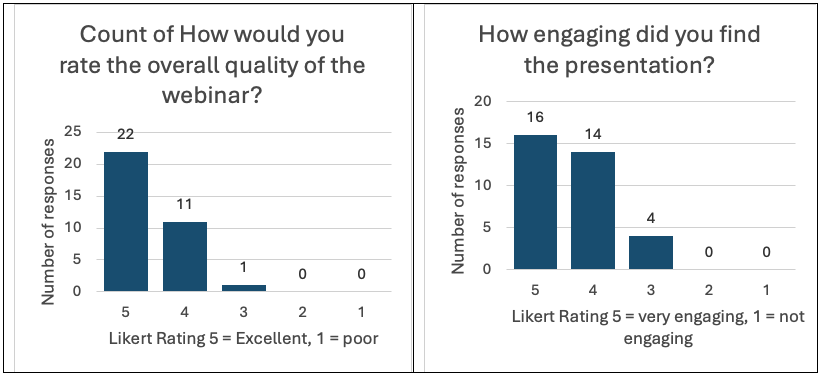
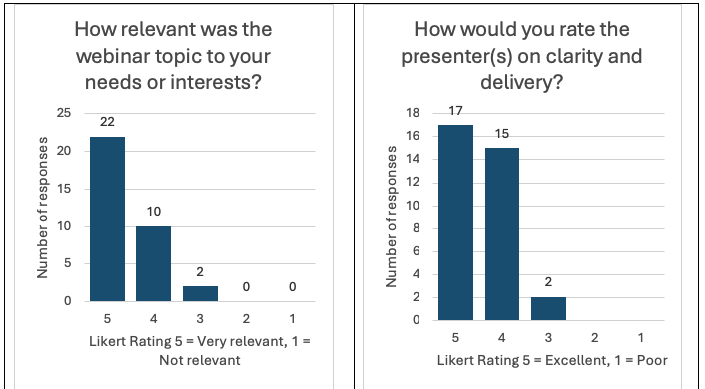
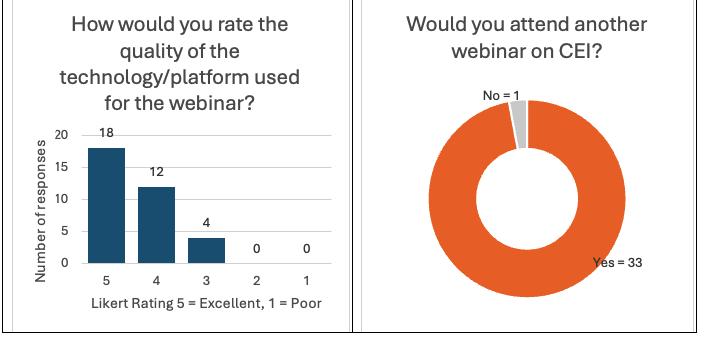
We also learnt that the webinar was the right length for the content covered with a tendency for being too long and 27/34 said the webinar met their expectations based on the description provided.
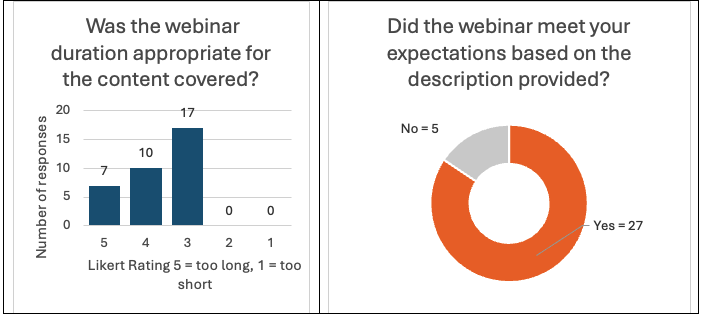
From the qualitative comments we learnt the most valuable pieces of information/insight attendees gained from the webinar was the different approaches to CEI initiatives within acquire brain and spine injuries and how important engagement was to reduce the neurological burden of disease. Attendees also mentioned the use of social media influencers and how they could be used to increase public health messaging.
‘The importance of advocacy in this area and how necessary it is for effective change to occur’
‘The one valuable piece of insight that I gained from webinar is that we must involved young social media influencer in order to bring awareness in public’
‘The presenters shared practical examples and case studies that demonstrated the real-world impact of partnerships’
We also asked what we could improve for next time, from the twenty responses nine indicated there was nothing to change, four were related to technology including the webinar hosting platform and the quality of the internet connection. Additional comments asked us to consider using subtitles for all presentations, increase the time for speakers, and add in break out rooms so that the depth of discussion could be increased. Thank you so much to all our speakers and my Co-Chair Mr Angelos Kolias. Also, a special thank you to Dr Brandon Smith who without whom none of this would be possible and to all those from the CEI group who supported this successful event. We are looking forward to hosting another event in the future.


